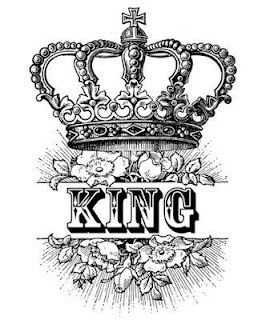NCERT SOLUTION FOR CLASS 12 VISTAS ENGLISH THE TIGER KING
READ AND FIND OUT
1. Who is the Tiger king? Why does he get that name?
Ans: The Maharaja of Pratibandapuram is the Tiger king. He gets that name for his skill in killing tigers.
2. What did the royal infant grow up to be?
Ans: The royal infant grew taller and stronger day by day. He grew up to become the warrior of warriors, hero of heroes, champion of champions.
3. How will the Maharaja prepare himself for the hundredth tiger which was supposed to decide his fate?
Ans: The Maharaja thought that he had to be extremely careful with the last tiger. It seemed easier to find tiger’s milk than alive tiger. He announced a three year exemption from all taxes for that village in which hundredth tiger was seen and set out on the hunt at once with extreme care.
4. What will now happen to the astrologer? Do you think the prophecy was indisputably disproved?
Ans: Having killed the last tiger, the Maharaja would naturally desire to call the astrologer and make fun of his prophecy. But by then the astrologer was already dead. No, I don’t think the prophecy was indisputably disproved. He killed 99 tigers. But he was not able to kill the hundredth tiger. At last toy tiger became the cause of his death.
READING WITH INSIGHT
I. The story In a satire on the conceit of those in power. How does the author employ the literary device of dramatic irony in the story?
Ans: The whole story is a satire on the conceit of those in power. The name of the hero itself is satirical- His Highness Jamedar General, Khiledar Major, Sat Vyaghra Samhari, Maharajadhiraj Visva Bhuvana Samrat, Sir Jilani Jung Jung Bahadur M.A.D., A.C.T.C., or C.R.C.K.
The next example of the conceit is that though he was a prince of an lndian state, his father did everything possible to help him grow like an Englishman. When the crown prince took change of the state, he thought of his own safety alone and almost all his life did not bother about the affairs of the state.
The dramatic irony becomes clear at the end of the story. The tiger king tried his best to undo the prediction. Yet he was killed by a tiger, though a wooden one.
2. What is the author’s indirect comment on subjecting innocent animals to the willfulness of human beings?
Ans: The author's indirect comment on hunting comes at the end when he says, “In this manner the hundredth tiger took his final revenge upon the king.”
3. How would you describe the behaviour of the Maharaja’s minions towards him? Do you find them truly sincere towards him or are they driven by fear when they obey him? Do we find a similarity in today’s political order?
Ans: The behaviour of Maharaja’s minions towards him is far from being sincere. Even when they obey him, they do so out of fear. His dewan manages an old tiger for the tiger king because otherwise he was going to lose his job. The hunters killed the tiger for the same reason. They could not afford to risk their job by telling him the truth.
4. Can you relate instances of game-hunting among the rich and the powerful in the present times that illustrate the callousness of human beings towards wildlife?
Ans: Please attempt yourself.
5. We need a new system for the age of ecology a system which is embedded in the care of all people and also in the care of the Earth and all life upon it. Discuss.
Ans: There is no doubt that we need a new system for the age of ecology. Today’s man knows that the life on earth can survive only if it is allowed to continue in all its various forms. In other words the life of every creature and even small plant is as important as the life of a human being Human society cannot survive in isolation.
